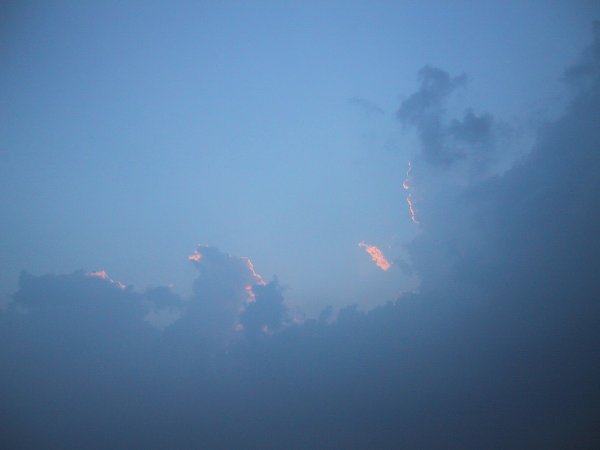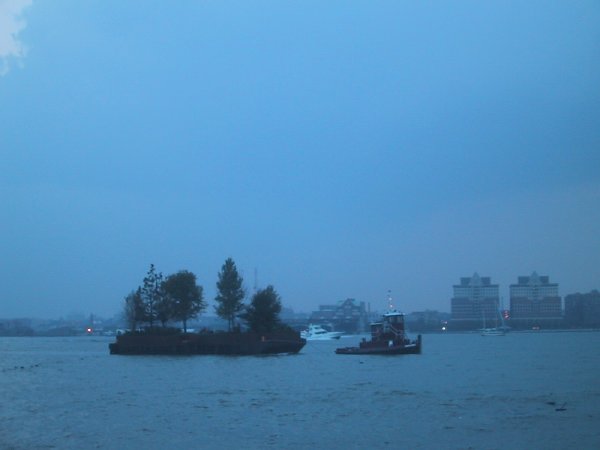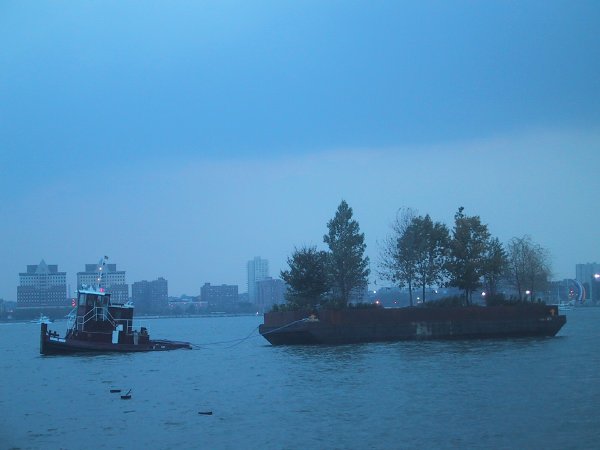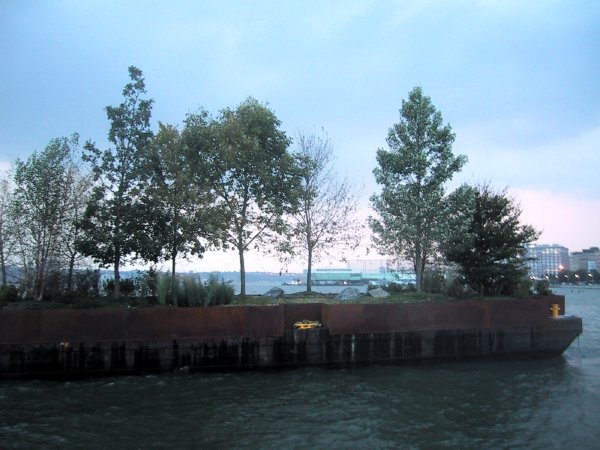



It was already early Saturday evening. We were walking down through Hudson River Park with a destination in mind, but we had started to assume that we would arrive too late to see the posthumous [performance?] of Robert Smithson's 1970 sculptural concept, "Floating Island", an homage to Manhattan and Olmsted's Central Park.
I stopped at the shore railing for a moment with my camera in order to capture a golden lining on the last clouds to witness a sun which had probably already set.
Then I caught up with Karen and Barry and we soon spotted downriver what the world had only seen as a child-like sketch until that afternoon: a little tugboat pulling a small barge along the shoreline, the barge filled with what looked like a chunk of landscape from the park itself, complete with shrubs, grass and boulders [the rocks borrowed from the park for the occasion].
The excellent skipper of the "Little Toot"-like tug had amazing control of his charges, and none of the spectators were disappointed, whether they stood on the shore or on the piers, as he passed by with his chunk of Manhattan in tow, then turned and passed again and again and again along the edges of both.
The three of us weren't even disappointed that we had forgotten about invitations to receptions which had promised food and drink. We had lingered too long among the temptations offered by Chelsea galleries that afternoon. By the time we arrived at the scene by the piers further downtown black-garbed, white-aproned caterers were emptying lots of unused bags of ice into the Hudson.
But the chase and the catch (here, the art, a delightful late-summer gift to the people of New York) was the thing, we reminded ourselves, especially if we couldn't picnic on the barge. It was now almost totally dark, so we crossed the highway and headed into the West Village to track down what turned out to be a fine dinner with excellent company.
One last thought: At what age did we first learn that most islands don't float?
What do you mean islands don't float? How do they stay there then?